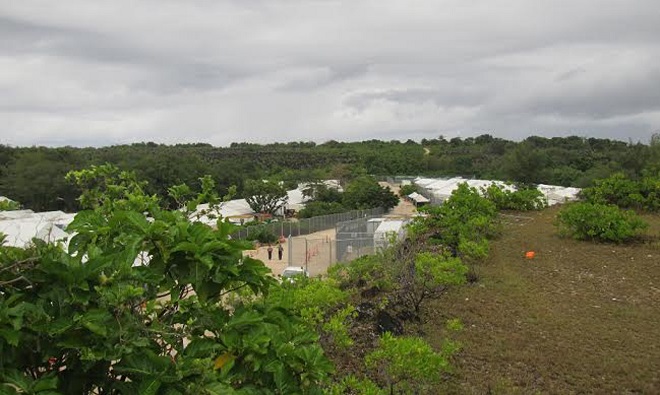
Tuesday October 13, 2015

The release by Mercer PR of a Somali refugee’s name and graphic details of her alleged rape on Nauru have been condemned.
The release by the Nauruan government and its Australian public relations company of the identity of a sexual assault complainant on Nauru, with graphic details of the alleged attack, has been criticised as an “extraordinary” breach of privacy.On Monday Mercer PR distributed a press release on behalf of the Nauruan government outlining that a police investigation had found insufficient evidence over serious allegations of a sexual assault made by a female Somali refugee who was previously detained in the Australian-run detention centre on Nauru. The allegations were first reported by the ABC’s 7.30 program in September.The allegations raised by the woman are separate from the refugee who was brought to Australia for a termination on Monday.
But in a move that has been widely condemned by former police, politicians and academics, Mercer PR also released a police report with the name of the complainant and graphic details of the assault allegations. The police file included comments about the complainant’s vagina and whether there was any evidence of semen and sexual activity.
A former New South Wales police detective, Peter Fox, said the release of the information was something he had never seen in more than 30 years of policing.
“I had 37 years in the police force predominantly as an investigator,” he said. “Never are the names of victims in those situations ever released. That was a policy of the judiciary, and also of the police force throughout this nation.
“To have done that is extraordinary. I think it just again shows the real lack of care and protection of some of these poor people that are being abused in detention.”
Greens senator Sarah Hanson-Young said: “It’s outrageous that the police have released this young woman’s name. She was already vulnerable and this will put her at an even greater risk of harm.
“This is a clear message from the Nauru police to other women on the island: if you dare raise your voice, not only will you see no justice, you’ll be named and shamed publicly as well.”
The woman’s lawyer, George Newhouse, also warned that the disclosure could see fewer women come forward to report serious allegations.
“It’s likely that sexual assault victims will no longer approach the Nauruan police because they know that the Nauruan police will disclose their name and personal intimate details to the public,” he said. “It’s policing 101.”
In Australia sexual assault complainants generally cannot be identified publicly. The Nauruan criminal code does not appear to have any corresponding prohibitions.
Macquarie University professor Catherine Lumby said: “It is a first principle of protecting survivors of sexual assault that you do not disclose their identity, that you offer them counselling, and you offer them options.
“I think the real culpability lies with our own federal government, which is allowing women to be incarcerated or semi-incarcerated in the situation where clearly the policing standards do not meet ours.”
The founder of the company, Lyall Mercer, defended the release of the material, and told Guardian Australia it had been distributed on behalf of the Nauru government.
The release of the data by Mercer’s company has also raised questions about whether it may constitute a breach of Australian privacy laws. Under Australian law, disclosing personal details of a person without their consent could be a breach of privacy law. An exception to privacy laws exist for entities that have a turnover of less than $3m a year.
When asked whether he was aware of Australian privacy law surrounding the publication of personal data, Mercer told Guardian Australia: “I’m not going to talk about it. We represent the Nauru government. We simply represent the government. We do communications for them. I can’t answer any more.”
The metadata of the Nauruan police file attached to Mercer’s press release also suggest that one of his employees modified the document before it was distributed to journalists. But Mercer said: “Nothing was modified. It was straight from whatever we got from the government. There was nothing modified from our office.”
Detailed written questions were also put to Mercer on Tuesday morning.
The Nauru police force said it issued the police report “in the interests of full accountability”.
“This matter is not before the court and there is no evidence to indicate a crime was committed, therefore there is no legal reason to suppress her name according to Nauruan law,” it added.
Mercer has previously written about the importance of privacy on his personal blog. In previous posts about the behaviour of the TodayFM journalists after the death of Jacintha Saldanha, a nurse at a hospital caring for a pregnant Duchess of Cambridge, Mercer wrote: “Did they consider that asking anyone for personal medical details is a gross invasion of privacy, let alone likely illegal? Did they really think that a place that treats sick people and saves lives is a target for humour?”
He also wrote in regard to attendees at a lobbyists’ lunch that releasing names of attendees “muddies the story and invades the personal space of people who have not asked for public exposure”.